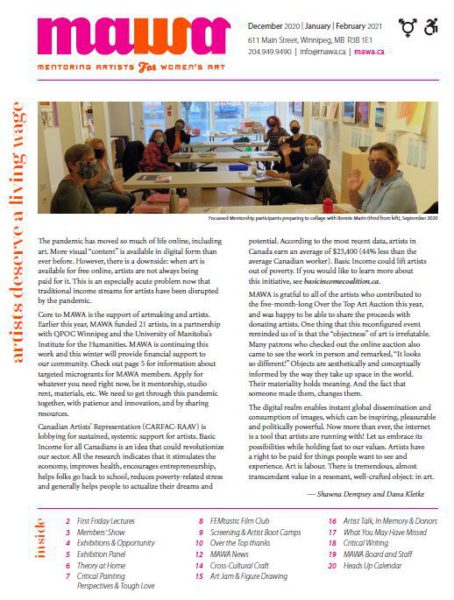
The Power of Performance by Tamara Toledo
Patriarchy is a judge
That judges our birth
And our punishment
Is the violence you witness
Femicide
Impunity for my killer
Rape
And the blame wasn’t mine
Or where I was
Or how I dressed
The rapist is you
They are, the cops
The judges
The state
The president
The oppressive state is a rapist macho
The rapist is you
I sweat, my heart pounds, my mind turns in multiple directions, I’m hypersensitive to everyone’s energy. The visceral reaction is inevitable as I remember the many demonstrations I attended in Santiago, Chile during the 80s, denouncing the repressive dictatorship we lived under at the time. Shouting “El que no salta es Pinochet/Those who do not jump are Pinochet” led to everyone jumping in unison, our hearts pounding even faster, jumping as high as possible as if trying to reach the sky. For us, the act of protest signified movement, music, chanting, singing, an opportunity to express our discontent, our rage against a system that tortured and disappeared our loved ones, exiled many of us and limited our freedoms through tactics of oppression and terror. The act of protest became a performance that included many bodies, boosting our spirits, our collective strength, an intensity undeniably alluring. The memory of those moments lingers years later, each time I join a protest.
On October 18, 2019, a new social uprising took place in Chile. Millions of people took to the streets and demanded that the neoliberal system be dismantled. The “Chilean awakening” was brought on by years of accumulated suffering—a military coup d’état, seventeen years of dictatorship, a constitution imposed by the military junta—all of which exacerbated the social inequality and corruption fostered by neoliberalism. People had nothing more to lose. Over the past year, days of protest have become months of social unrest, and artists have taken up the task of contributing to justice, equality and dignity. Their creativity has changed perspectives on the power of feminist performance art worldwide.
Patriarchy has become the norm in Chile. Women suffer its consequences every day in every shape and form, yet as history has proven, these women are resilient, capable of leading movements, defying and denouncing inequality and questioning authority despite its oppressive nature. Young feminist women in Chile today have begun a process of shaping the nation’s future using performance as a call for action, a limitless collective proposal of empowerment that men cannot ignore nor deny. The role art is playing in shaping Chilean society is undeniable.
LasTesis, a collective of feminist artists based in Valparaiso, introduced a performance/intervention in the form of protest, Un violador en tu camino/A Rapist in your Path, that created a wave of insurmountable ripples across the globe within weeks. Its lyrics, based on the texts of Argentinian feminist anthropologist Rita Segato and her theories around gender-based violence, inspired women to join forces and accuse those guilty of institutional violence. The first iteration took place outside Chile’s Ministry for Women’s Rights and Gender Equality, on the International Day for the Elimination of Violence Against Women, November 25, 2019. It soon went viral, with performances by thousands of women in Mexico, Colombia, France, Kenya, India, Spain, United Kingdom, United States and Canada, and countless others.
Women wear black blindfolds, referencing those who lost their eyesight during the civil unrest in Chile because of targeted rubber bullets. They repeat the chorus “The rapist is you,” denouncing the country’s patriarchal culture and accusing Chile’s police, judicial system and president for failing to prosecute the men who commit and perpetuate violence. Performers squat three times with their folded arms up, representing the position they must take, naked, during body cavity searches when arrested. The power of the choreography resonates so deeply that others have adopted its message, tapping into issues such as the femicides in Mexico, police brutality against black Americans in the U.S. and Harvey Weinstein’s trial. Its infectious stomping rhythm, the accusatory lyrics and its powerful pumping fists, all in unison, spread the shared understanding that neoliberalism/patriarchal power structures/violence against women is a global issue and women across the globe demand an end to it.
An iteration organized by women who had lived under Pinochet’s dictatorship was held in front of the Estadio Nacional, a stadium that served as a concentration camp after the coup d’état. Ten thousand women gathered on December 4, 2019 in solidarity with the younger generation who began the Violador en tu camino movement. These older women chanted, squatted and danced with fists strong and high in the air. But more than a commemoration of the past and a protest for the present, the power of the artistic intervention lay in its ability to viscerally captivate, sparking the imagination of those who attended. It was a bright light of hope for the future that empowered the most vulnerable in ways that political processes cannot.
The feminist teachings of past generations have permeated contemporary discourses, as we witness a global anthem capable of stirring and agitating masses, all the while creating spaces of imagination through the unequivocal power of art.
Tamara Toledo is a curator, artist and PhD candidate. Her writing has appeared in C Magazine, Fuse and Canadian Art, among others. Co-founder of Latin American Canadian Art Projects (LACAP), Toledo is currently the Director/Curator of Sur Gallery.

